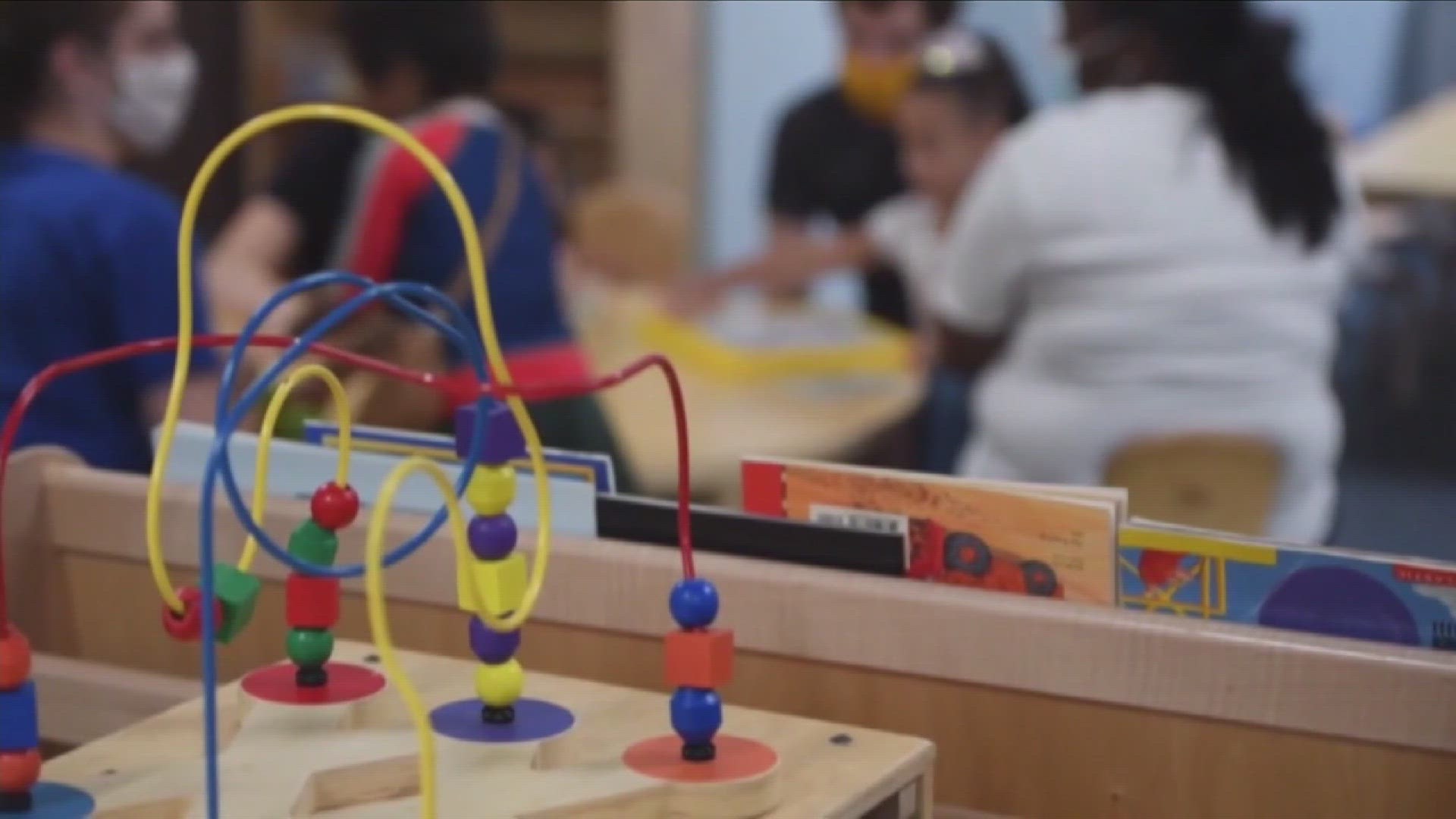MEMPHIS, Tenn. — If you are a new parent in Tennessee looking for child care, you are probably familiar with the long waitlists and growing cost.
According to a report from Tennessee For Quality Early Education, care for an infant or toddler will cost parents more than some state colleges.
“Sometimes those waitlists run anywhere from 18 months to two years,” said Sen. Charlane Oliver, (D) - Nashville, one of the many trying to tackle child care costs in Tennessee.
On average, Memphis parents spend just above $8,000 annually on child care. Over the past year, Tennessee lost $2.6 billion due to the current set up of the child care system, which is unattainable for some families.
When we asked people about their experience with child care, several parents voiced their frustration. Some parents told ABC24 they had to pull their child out of daycare simply because they could not afford it, now feeling that they were trapped in a loop.
"No one seems to understand this... Can't get a job because daycare, can't send to daycare without a job — it's a stuck loop on top of the if we had a job it still wouldn't be worth the daycare prices, breaking even weekly," Taylor Belt said on Nextdoor "What's the point in working, huh?"
Oliver said part of what the state is seeing right now is the result of the loss of critical pandemic funding, which threatened to close 1,200 Tennessee daycare centers coming out of the pandemic. In addition, Oliver mentioned the system as a whole is struggling to retain a workforce.
“Daycare workers only get paid $22,000 to $25,000 a year," Oliver said. "That’s enough to qualify for government assistance. When we don’t have enough workers, we can’t open classrooms. When we can’t open classrooms, we can’t provide infant care.”
This is part of the reason why Oliver introduced six bills during this legislative session to make child care more affordable and offer support to the current child care system.
The bills include:
- SB 2064/HB 2233: Which would increase eligibility for child care assistance
- SB 2207/HB 2822: Which would reduce the amount a family would co-pay for child care
- SB 1805/HB 1962: Which would change how the Department of Human Services calculate child care costs
- SB 2063/HB 2232: Which would launch a two-part study on low wages in child care services
- SB 0945/HB 0737: Which would develop a plan to create a child meal plan in food deserts
- SB 1907/HB 2517: Which would promote local municipalities to invest in child care
“We’ve got to break that cycle by supporting our child care providers more, opening up more centers and also opening up more seats,” Oliver said.

